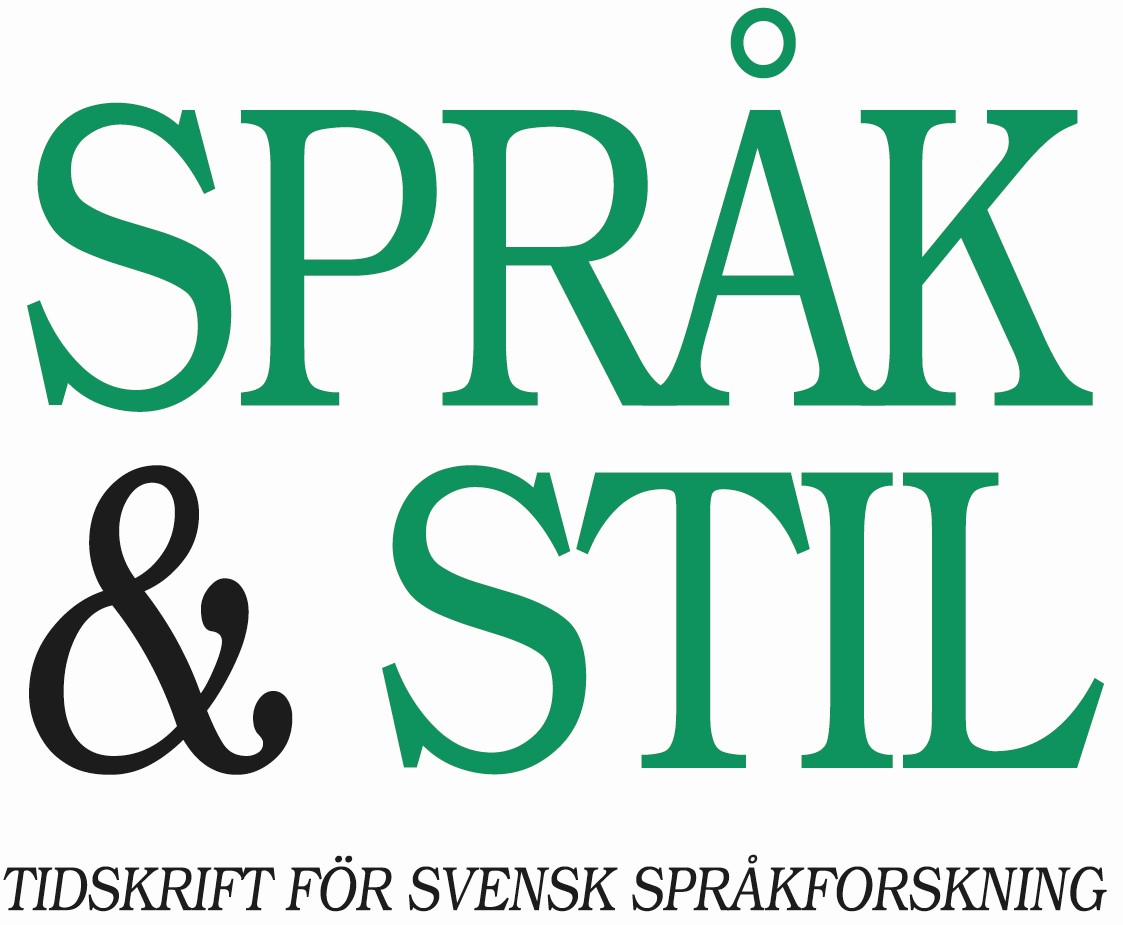Svenskans obestämda plurala artikel ena Lexikon, syntax och pragmatik
Nyckelord:
indefinite article, emotive article, plural, predicative, SwedishAbstract
The Mainland Scandinavian languages have variants of two indefinite singular articles, en (‘a/ an’) and någon (‘any’). In these languages, the article någon also has a plural form, några, but Swedish differs from Danish and Norwegian in that en also has a plural form: ena. Thus, Swedish has a system of two indefinite plural articles. However, the use of ena is restricted and not thoroughly clarified. This study investigates the use of ena as an indefinite plural article in modern Swedish by comparing it to the use of några. Approximately 500 occurrences of noun phrases with ena and några were excerpted from text corpora and analysed with respect to lexical, syntactic, and pragmatic aspects. The analyses are combined with acceptability judgements of ena in different contexts. The results show that ena is less frequent than några in the corpora, and that its use is affected by the lexical context, the information structure, as well as the clause type. Firstly, noun phrases with ena are exclusively evaluative, and the article itself seems to give rise to an evaluative reading. Secondly, ena is principally used in noun phrases describing a referent and accordingly appears with information-structural focus. Finally, ena does not appear in negative polarity contexts, i.e. questions, negative statements and conditionals. Therefore, the analysis suggests that the plural indefinite article ena should be treated as a positive polarity item.
Downloads
Publicerad
Nummer
Sektion
Licens
Copyright (c) 2023 Författarna

Det här verket är licensierat under en Creative Commons Erkännande 4.0 Internationell-licens.
Författare som bidrar till Språk & stil har givit sitt medgivande att publicera sina artiklar under en Creative Commons-licens (Creative Commons CC-BY 4.0), vilket ger tredje part rätt att kopiera och återdistribuera materialet i vilket medium eller format som helst. Det ger också tredje part rätt att bearbeta, förändra och vidareutveckla materialet för vilket syfte som helst, inklusive kommersiellt, på villkor att tydligt erkännande ges till verkets upphovsperson, att en länk till licensen tillhandahålls och att det tydliggörs om ändringar av verket har gjorts. Detta ska göras på skäligt vis, och får ej förespegla att licensgivaren godkänner tredje part eller vederbörandes användning av verket. Författaren/författarna behåller copyright till verket.


